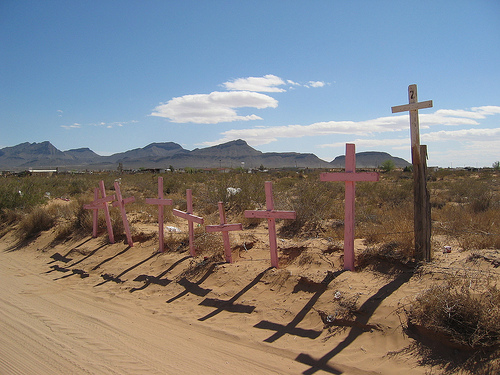Colombia’s senate approves referendum on extending presidential term limits
The Colombian Senate approved a proposal to hold a referendum on amending the country’s constitution to allow a third term for the hardline President Alvaro Uribe.
The Colombian Senate approved a proposal to hold a referendum on amending the country’s constitution to allow a third term for the hardline President Alvaro Uribe.
The Bolivian Supreme Court of Justice opened the trial of fugitive ex-president Gonzalo Sánchez de Lozada in connection with the deaths of 63 protesters in October 2003.
Venezuela’s government sent troops to “temporarily” seize a pasta factory owned by US food giant Cargill, having found it guilty of violating price controls.
Venezuela’s President Hugo Chávez sent troops to take over companies that provide services for the oil industry. “This is a revolutionary offensive,” he told workers near Lake Maracaibo.
Venezuela’s President Hugo Chávez defied the request of his Colombian counterpart Alvaro Uribe to help catch FARC guerrillas that apparently fled to Venezuelan territory after a deadly battle.

Peru's Supreme Court revoked the pardon of ex-dictator Alberto Fujimori, ordering him back to prison. His supporters in Congress are drafting a law to make the pardon permanent, but this is on dubious constitutional grounds and violates international human rights treaties. Meanwhile, survivors of the Fujimori-era "dirty war" continue to seek justice for the crimes of that period. One campaign is to block right-wing candidate Daniel Urresti, accused in the assassination of journalist Hugo Bustíos, from running for mayor of Lima. (Photo: Diario Uno)
Caracas has recalled its ambassador from Lima in response to Peru’s decision to grant political asylum to wanted Venezuelan opposition leader Manuel Rosales.
Bolivian authorities say the dismantling of a commando made up mainly of foreign mercenaries could lead to the people behind around a dozen different attacks carried out since 2006 in Santa Cruz.
Extradited and convicted paramilitary warlord “Don Berna” wants a commission of Colombian congressmen to visit him in his US prison to continue his collaboration with Colombian justice.
Two men who fought for Croatian independence in the 1990s are among five the Bolivian government says planned to kill President Evo Morales. Three were killed in a shoot-out with police.
Manuel Rosales, mayor of Venezuela’s second city Maracaibo, has dropped out of sight after President Hugo Chávez vowed on national TV to have him imprisoned.
Daniel Rendón Herrera AKA “Don Mario,” Colombia’s most wanted drug lord, was captured in Urabá with 30 henchmen. He is accused of involvement in 3,000 homicides over the last 18 months.